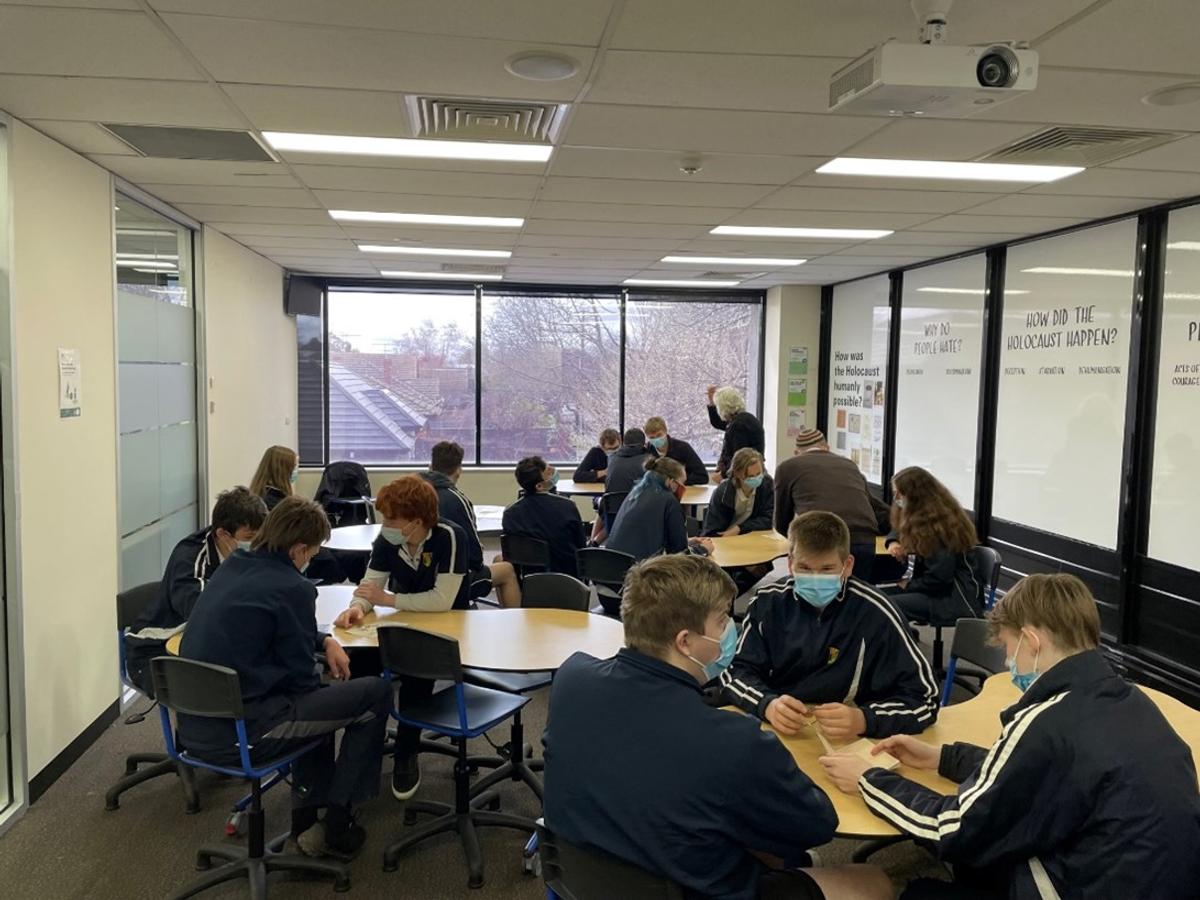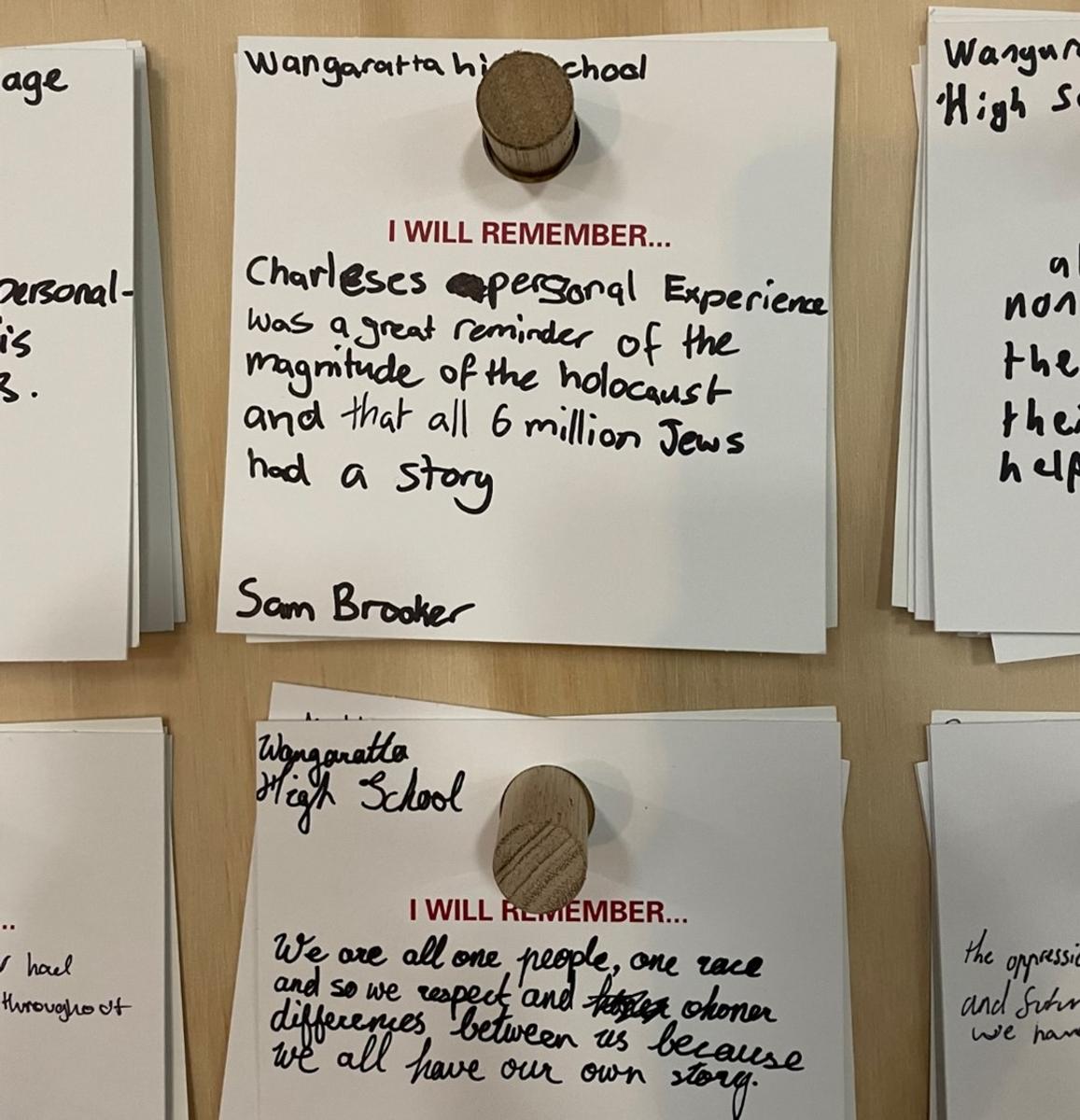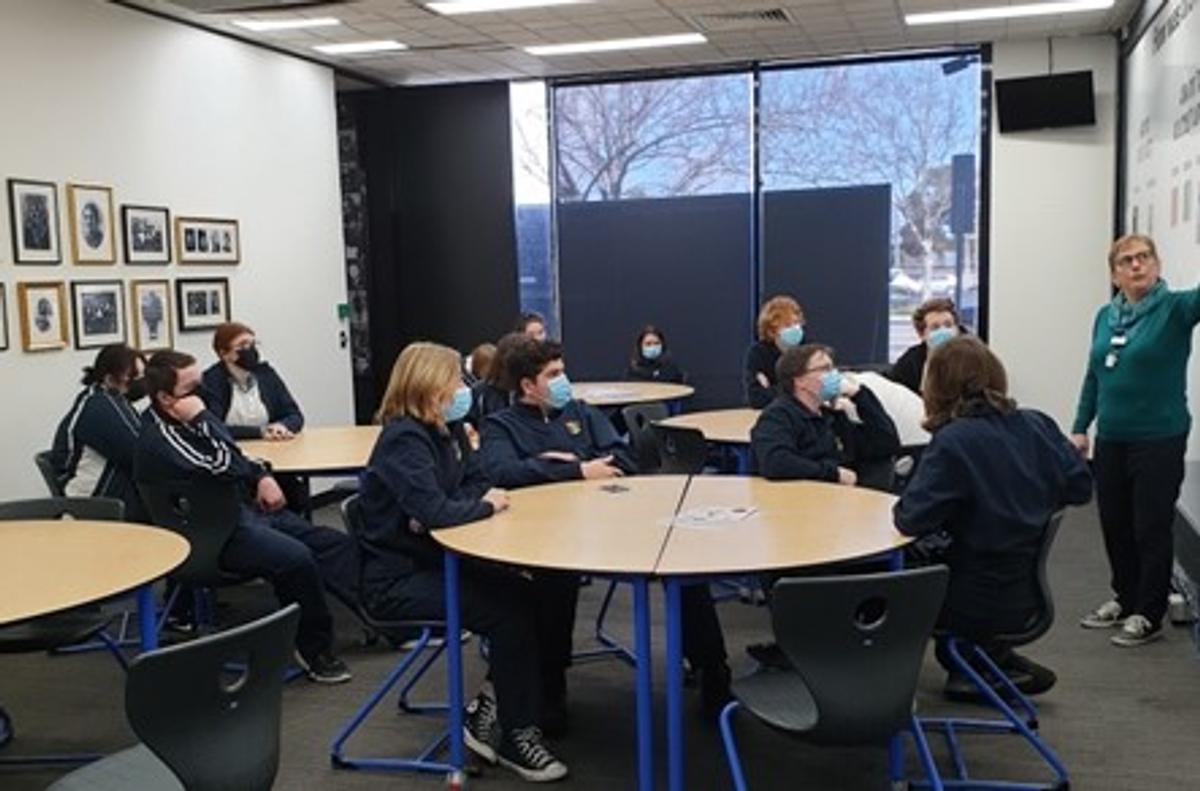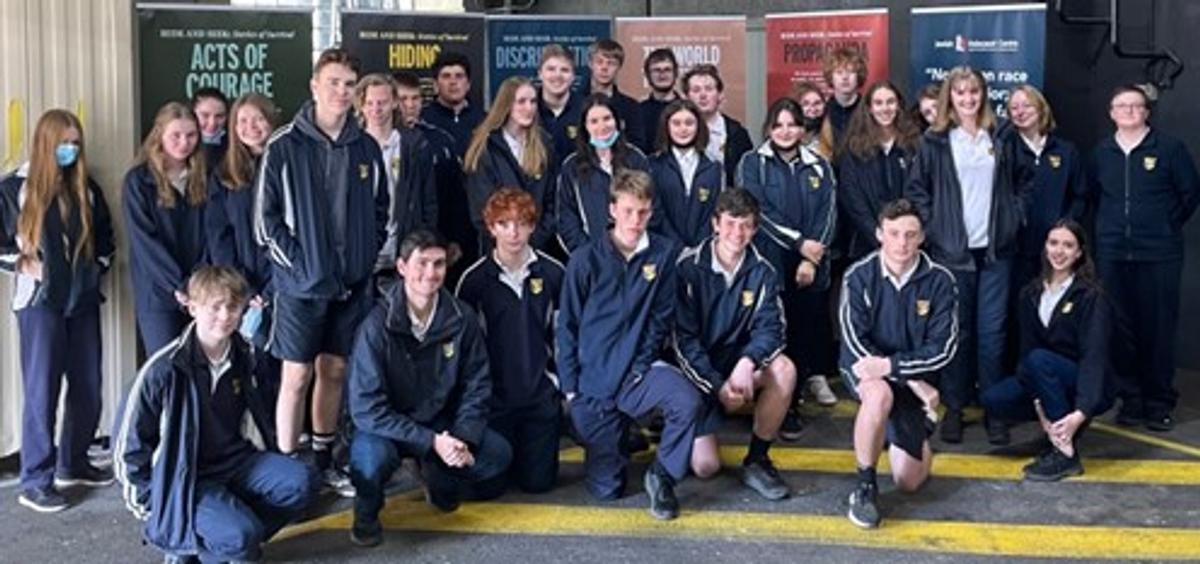Melbourne Holocaust Museum Excursion
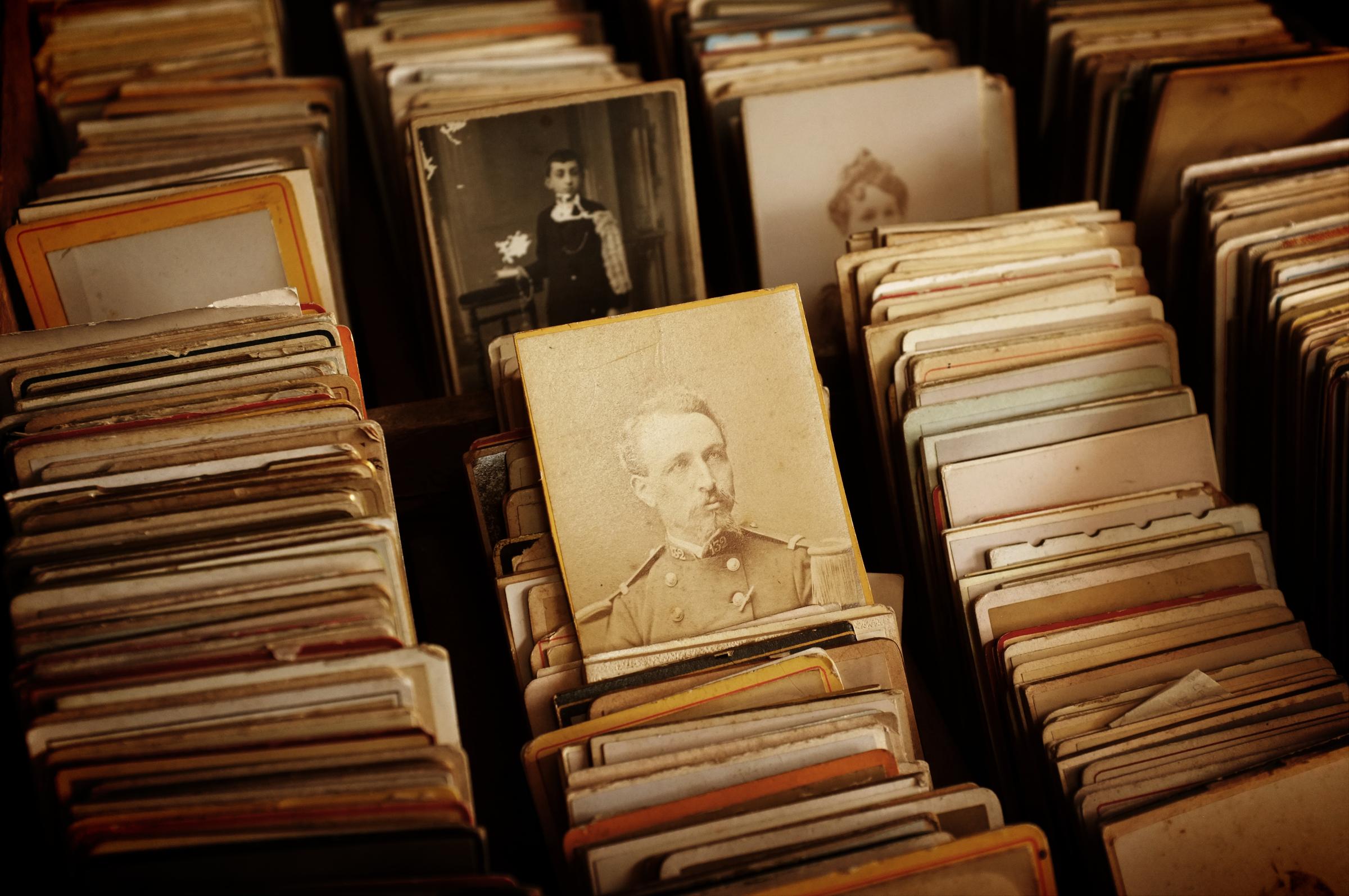
On Thursday, 25th August, 26 students from the two Year 10 Humanities, WWII & The Holocaust classes, along with eight Year 9 SEAL students, had the privilege of attending the Melbourne Holocaust Museum, where they met a survivor, Charles Gordon. The museum is currently in a temporary location whilst the original building is being refurbished, so the students were broken into two groups and were given replica artefacts from the survivors. In their groups, students worked together to discern what the items might be and how they could fit into categories, such as resistance, acts of courage and loss. The items were then placed under the appropriate headings and the students were fantastic in their participation and discussions.
Following the group task, we all gathered and had the honour of meeting Charles, who told us his survival story. Charles was born in August 1936 in Czernowitz (now Chernivtsi), the capital of the Romanian province of Bucovina. He and his parents were living a traditional middle class Jewish life under Russian control until 1941, when the Soviets withdrew, and the combined Nazi and Romanian forces took control. At five years of age, Charles and his parents were deported to a ghetto in Moghilev (now part of Ukraine) where they survived terrible conditions until Spring, 1944 when the Soviets liberated the camps. Sadly, Charles’ father was forced to fight for the Soviets, so Charles and his mother made their way back to Czernowitz, walking over 200kms. Charles and his mother spent many years moving around, eventually ending up in a displaced person’s camp for three years, where they were reunited with Charles’ father. By 1949, Charles’ mother had remarried an Auschwitz survivor and he managed to secure the family sponsorship in Melbourne. Charles went to school in Kensington, not being able to speak a word of English, but this did not stop him. He built a life that included successful careers in machine repairs and real estate and married a woman named Luba with whom he raised a daughter.
Charles told us recounts of people who had saved his life, including a German soldier, who fed him and was ultimately killed for his acts of kindness. He also met a man, Yaakov, who had been an orphan at the same ghetto in Ukraine and they discovered that Yaakov had picked apples that had helped in Charles’ mother beating typhus. Charles and Yaakov remained lifelong friends, and Charles became the godfather of Yaakov’s children. Our students were in awe of Charles’ experiences and listened with respect and amazement. They also asked evocative questions, that demonstrated incredible empathy and depth of thought. Congratulations to the students who attended on their brilliant and respectful behaviour.
We would like to thank the museum staff and especially Charles, for sharing their time and knowledge with us.
Ms Wealands & students

